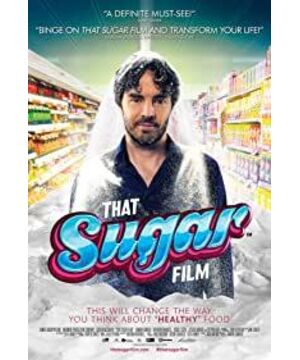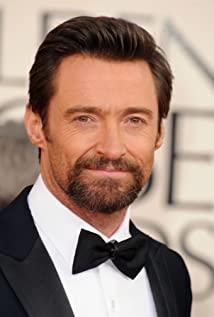This film records the protagonist's 60-day diet experiment, changing the source of energy intake while calorie intake remains the same or even less. The most terrifying part is that he eats "healthy food" instead of what the public thinks. "junk food".
The most subversive thing for me is that the traditional calorie measurement method is completely unconvincing in this film. The commercialized scam is not only "the essence of poverty is laziness", but also "the root of obesity is gluttony and inactivity". , the cravings that make us overweight or sick may just be sugar. Fundamentally lead to the formation of a materialistic culture. In addition to obesity, disease risk, dependence response, excessive eating and difficulty in withdrawal, the harm of sugar also includes mental instability and emotional instability.
This film is aimed at a wide range of audiences, the narrative is simple and easy to accept, the popular science shots are very interesting, and the parts that may be boring to drive customers are very attractive, even more exciting than his normal narrative. And finally, a Bollywood-style satirical song and dance? The protagonist makes a huge sacrifice, experimenting at the expense of his own health. Such a huge contrast in diet rules has a greater impact on him. But the fly in the ointment is the lack of evidence, and it is unfair to attribute the problem to sugar when the food is more than sugar (but he did look too sour the day he ate raw white sugar, and it was too much to ask for such an experiment. cruel……). Including the study of the relationship between the physical problems of primitive tribes and sugar, the cause is directly attributed to dietary habits, because the store offers too much sugar in the diet. But is it possible that the amount of exercise is reduced after the cancellation of farming and hunting? Changes in living environment? Moreover, the commercially provided foods not only have the problem of sugar, but also contain a lot of traditionally unhealthy junk food, and their calorie intake or other is not as strictly controlled as the protagonist. The same goes for the dental status of the people in the state I forgot the name of the drink, which only shows limited information, i.e. - people here drink a lot of carbonated drinks - a lot of children here have bad teeth, and then establish a cause-and-effect relationship , which is not convincing enough. The relationship would be clearer if states were able to compare the sugar content of their diets and their dental health. Not to mention that he found an expert who argued that sugar calories are no different from other calories, contrary to his opinion, by asking whether the other party had been funded by Coca-Cola to imply that his position should be skeptical, and the related conference show that Coca-Cola as a sponsor. This is all about implying "shady scenes" through introductory pictures when there is insufficient evidence. Of course, the difficulty and depth of this aspect do not need to be stated clearly, and it is not required to do so much in this popular movie. But the male protagonist finally gave up all sugar directly and consumed energy through green vegetables, fruits and fat protein. I think it is difficult for ordinary people to do it...
The significance of this film is to break the beautiful packaging of sugar, not only in jelly, milk tea, cakes, but also in so-called "healthy food" yogurt, juice, and cereal. Taking a not rigorous but very intuitive example, That is, the protagonist's own health shows us the harm caused by sugar, especially fructose. The principle of its "addiction" and the reason for its popularity, it is the poisonous apple handed to each of us by commercial civilization, and we bite down without knowing it, thinking that living in a fairy tale has no price.
View more about That Sugar Film reviews











